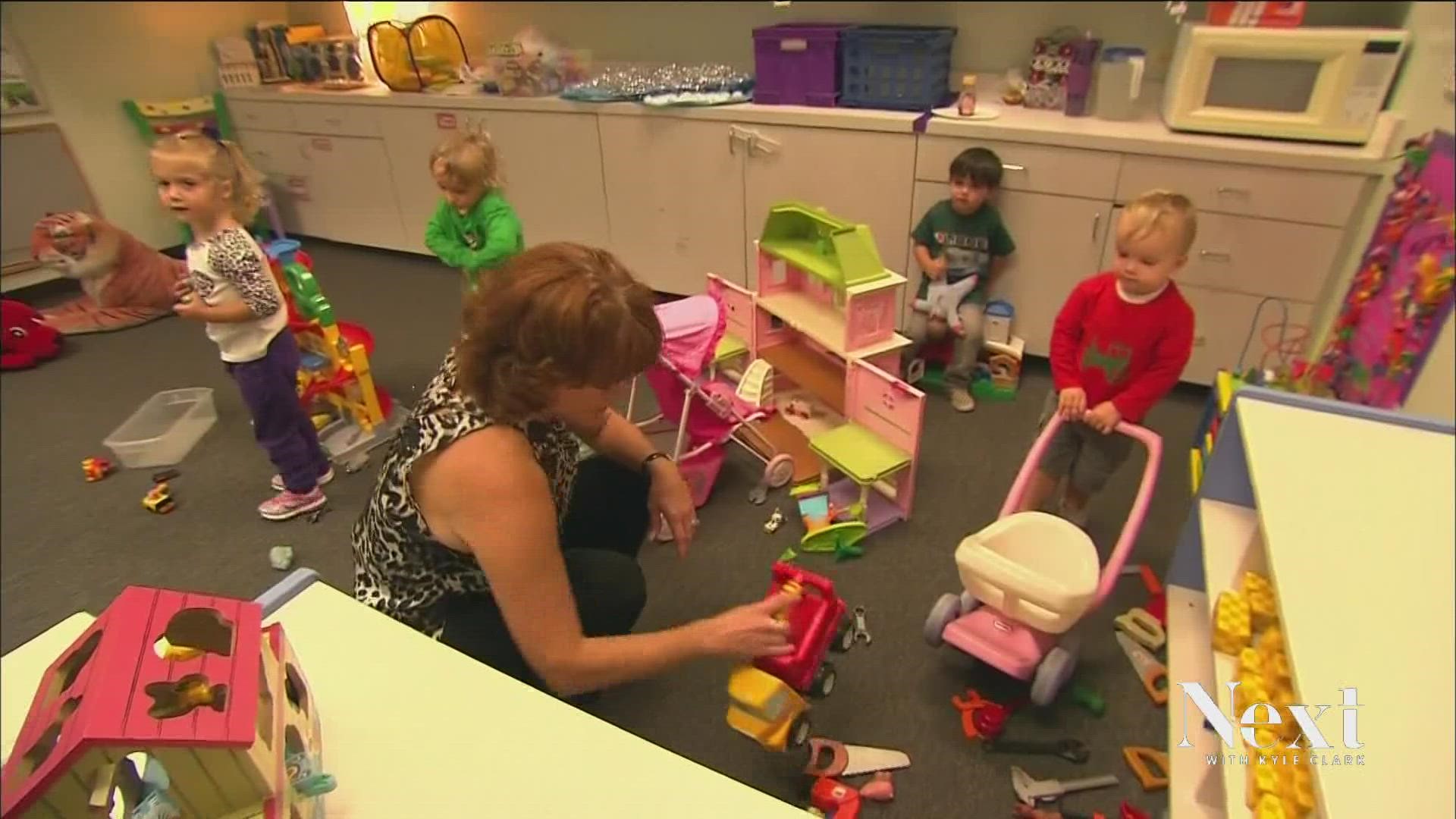DENVER — Some Colorado leaders are excited we're closing in on 2023: It's the year universal pre-K is set to launch. The state has set a goal of recruiting thousands of more teachers, teachers that are hard to come by.
Here's a look at the state's strategy.
What is the goal?
In an email, the spokesperson for the Colorado Department of Early Childhood wrote:
"One of the primary goals this year is to recruit, retain, well-compensate, and support a diverse and qualified early childhood workforce to provide care and education to all children and their families. The Polis administration's intention is to recruit nearly 3,000 new professionals into the early learning workforce by September of 2024 through several strategic initiatives."
The state said 61,000 kids are eligible for universal preschool, writing:
"Ultimately, the state wants to ensure that every child has access to high-quality preschool programming prior to kindergarten. We know from other states with similar programs that building capacity takes time. The state anticipates between 40-60 percent uptake by families in the first year, consistent with similar programs in other states. "
How will the state recruit more educators?
There are several initiatives the state laid out, including providing two free courses for early childhood educators that can help assistant teachers serve as lead teachers. The state expects to recruit some new teachers out of this program as well. So far 3,126 students are enrolled.
The state also set aside $50 million in grants to childcare providers to retain their existing workforce and recruit new educators and invite educators back into the classroom.
"We are funding nearly $21 million in recruitment and retention, such as scholarships, free minimum coursework through the community college and public IHE system, apprenticeships, peer mentorship, and free online training for childcare directors," the state wrote.
There is also a new tax credit they shared: "The legislature also created the early childhood educator tax credit through HB22-1010, which provides a refundable tax credit of $750-$1,500 for early childhood professionals. Over 8,000 early childhood educators are eligible for the new Early Childhood Educator Tax Credit."
The state is planning on using stimulus funding to offer loan forgiveness for early childhood educators teaching in early learning programs across the state.
The Department of Early Childhood also launched a new pilot program using federal funds to increase salaries by working directly with a handful of providers around the state.
Will it work?
Melissa Mares with Colorado Children's Campaign helped craft the legislation and is also a former kindergarten teacher. She said she hopes all these initiatives will work but the key is to recuperate after losing a lot of educators during the pandemic and then adding more to the work force.
The state wrote: "The goal doesn't fully account for the pandemic impact as it was created using workforce data from the third quarter of 2020 and also accounts for increased needs based on the early-stage implementation of UPK."
Mares said that many times, kids are priced out of preschool education or limited by where they live and by language barriers.
She said it will be critical to do thorough outreach to families, providers in languages they are most comfortable with so as many people can participate.
What's changed?
The governor has campaigned on this issue, and Colorado saw legislation recently pass to establish universal pre-K. However, it's building on decades worth of work. Mares said what is new is how prominent of a role early education is playing in the budget proposals.
The state wrote:
"This year's budget proposal includes a number of investments to support the early childhood profession. Most importantly, the Governor's November 1 budget request included $325 million for universal preschool. This funding will pay school-based, center-based and home-based providers to administer universal preschool. The Department of Early Childhood established the per-child rates by rule in November after a robust process to ensure that the program can pay the cost of high-quality care in every region of the state. Our rates are competitive and will support providers' ability to pay early childhood educators.
The Governor's budget proposal also includes funding to reduce background check fees, waive licensing fees for new providers, $3.0 million for providers to start or expand a child care center or family child care home, and $5.0 million for bonuses to providers that sign up to participate in universal preschool. All of these investments help support our essential childcare sector."
SUGGESTED VIDEOS: Next with Kyle Clark

